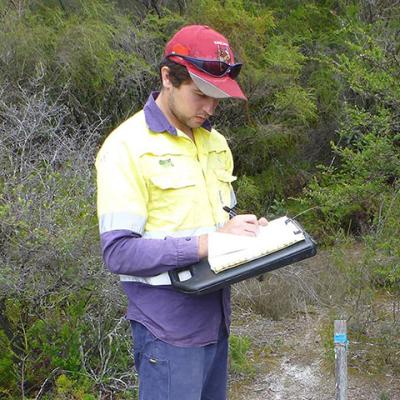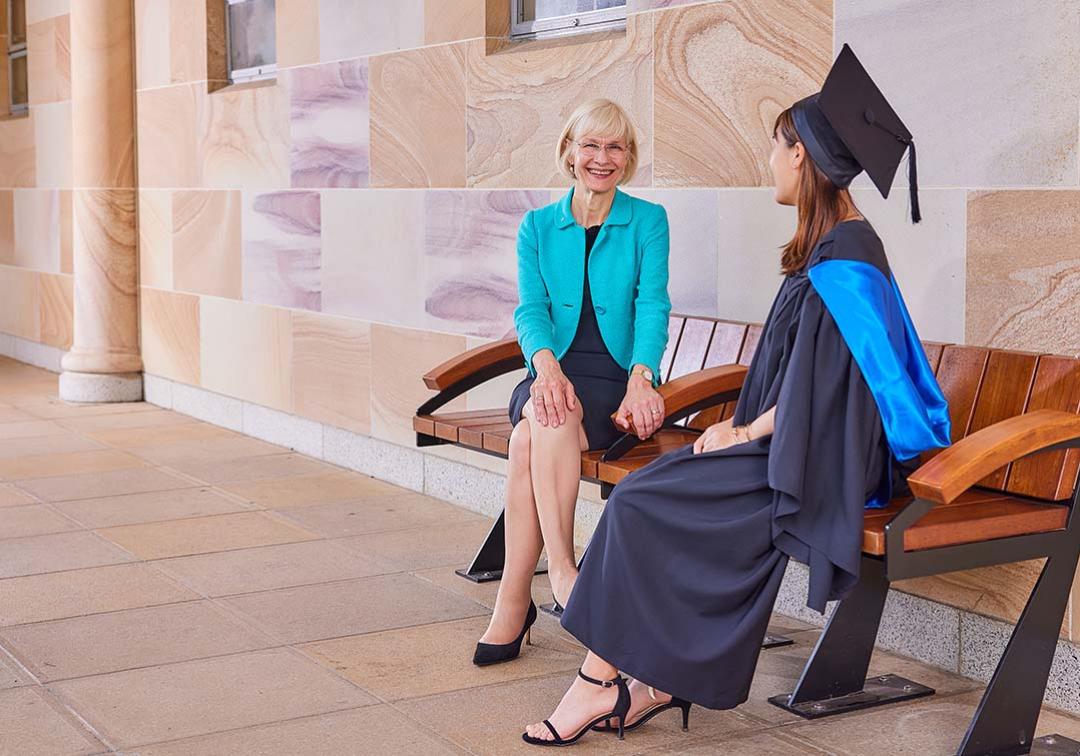
Bachelor of Environmental Science
Overview
Equip yourself with the knowledge and skills to understand the impacts of climate change and devise strategies to improve sustainability, manage ecosystems and preserve global biodiversity, clean water and food.
Study environmental science at Australia’s highest-ranked university for research in environmental sciences and benefit from every aspect of UQ’s local, national and global networks.
The Bachelor of Environmental Science 3-year program will teach you how to describe, monitor and predict environmental processes and the effects of human activity on physical and biological environments.
You'll gain the scientific knowledge and practical experience in ecology, conservation, environmental toxicology, natural resources and decision science necessary to understand and manage our changing planet. Plus you'll combine your scientific skills with knowledge of legal, political and social aspects of environmental management.
You'll also undertake extensive, practical field-based experiences in diverse subtropical and tropical ecosystems, including World Heritage rainforests, the Great Barrier Reef, North Stradbroke Island and outback Australia.
Upon graduating as a qualified environmental scientist, you'll find employment opportunities throughout industry, government and other sectors, and enjoy the personal and professional satisfaction of safeguarding our environment.
Program highlights
- Learn how to address the many challenges arising from diminishing natural resources and degrading environments.
- Undertake extensive practical experience to develop your skills to deliver a range of environmental strategies, solutions and programs.
- Enhance your scientific knowledge of resources, ecology, conservation, environmental toxicology and natural resource science.
How you'll learn
Your learning experiences are designed to best suit the learning outcomes of the courses you choose.
- Lectures
- Tutorials
- Work placements
- Laboratory work
- Fieldwork
- Workshops
What you'll study
At UQ, degrees are called 'programs' and subjects are called 'courses'. Here's a sample of the courses you could study in this program:
- Landscape Ecology
- Ecology Field Studies
- Global Challenges in Biology
- Environmental Impact Assessment
- Aquatic and Soil Environments
Career possibilities
Our programs prepare you for your first job and beyond. Here are some of the careers you could be on your way to:
- Environment adviser
- Impact assessment scientist
- Aviation and wildlife consultant
- Bushland conservancy officer
- Soil carbon researcher
- Toxicology consultant
- Water quality specialist
- GIS scientist
- Bushland conservancy officer
- Customer engagement specialist
Graduate salary
Science and mathematics (undergraduate)
compared.edu.au
Graduate salary
Agriculture & environmental studies (undergraduate)
compared.edu.au
Next steps after graduation
As a graduate, you will contribute to environmental decision-making and management, and address global environmental challenges. You can find employment in organisations and sectors such as:
- consultant companies dealing with environmental monitoring, impact assessment and management
- government agencies, nationally and internationally
- mining industries
- private companies, providing sustainability advice
- natural resource management, including coastal, river and catchment systems
- national parks and wildlife conservation
- policy development for government
- teaching and research
- environmental tourism
- international agencies.
Because of our strong research profile, many of our graduates choose to further their research ambitions by enrolling in Master of Philosophy or PhD programs, where they continue developing their research skills and make significant contributions to knowledge.
Events
See all events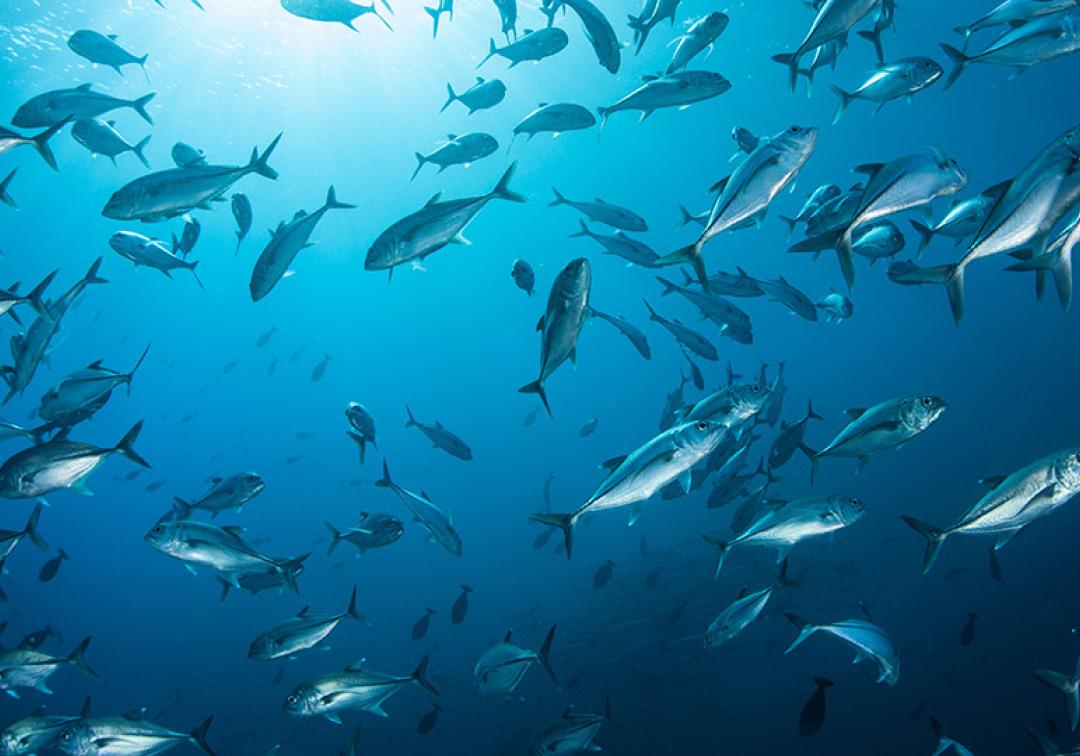
30 June
Queensland Biology Winter School, Year 11
Stories
See all stories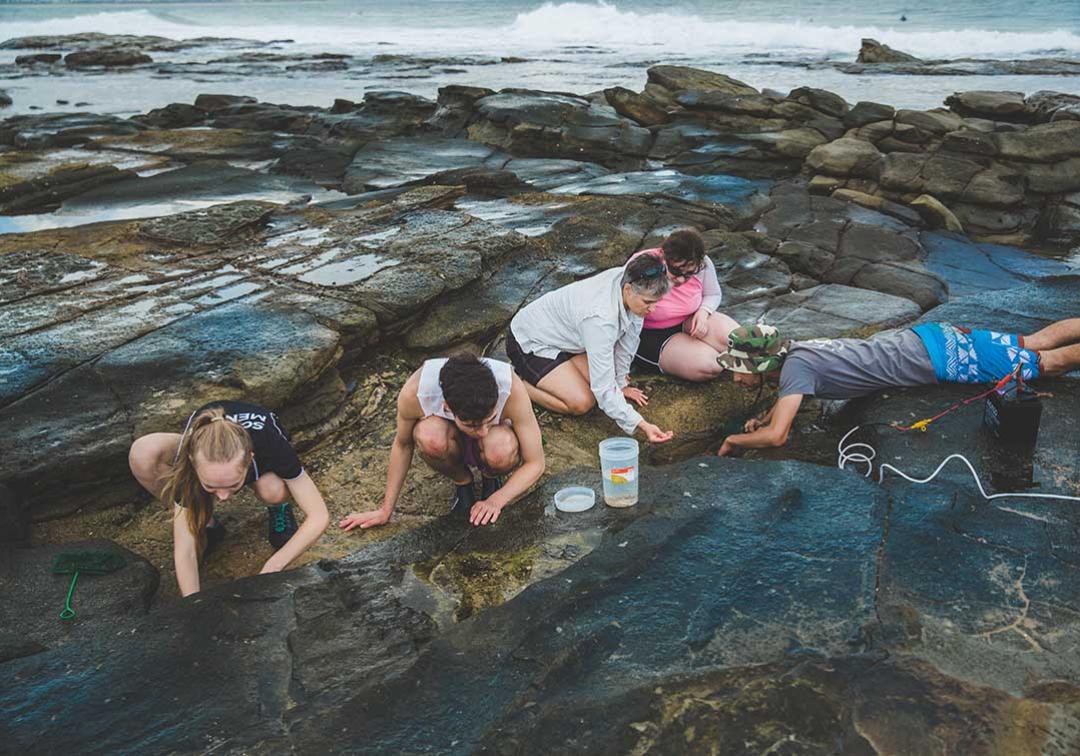
Study tips
Study environmental conservation as a postgrad at UQ
5-minute read
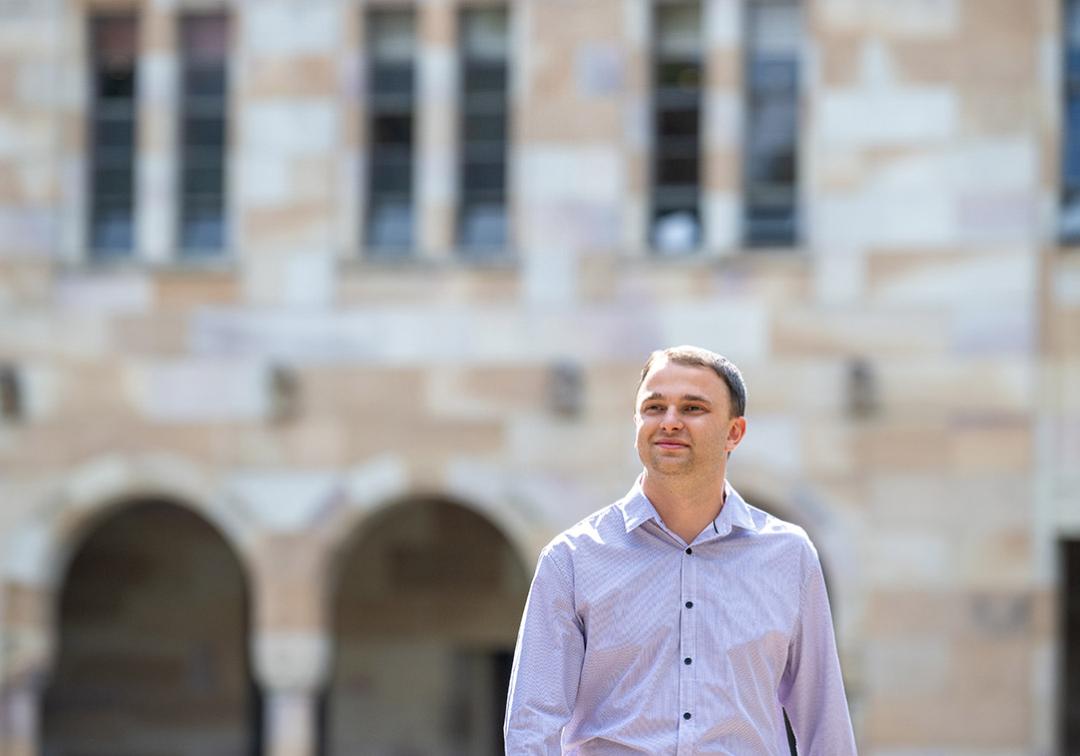
Uni life
What’s it like to study agriculture, environment and sustainability as a postgraduate?
6-minute read
Stories
See all stories
Study tips
Study environmental conservation as a postgrad at UQ
5-minute read

Uni life
What’s it like to study agriculture, environment and sustainability as a postgraduate?
6-minute read
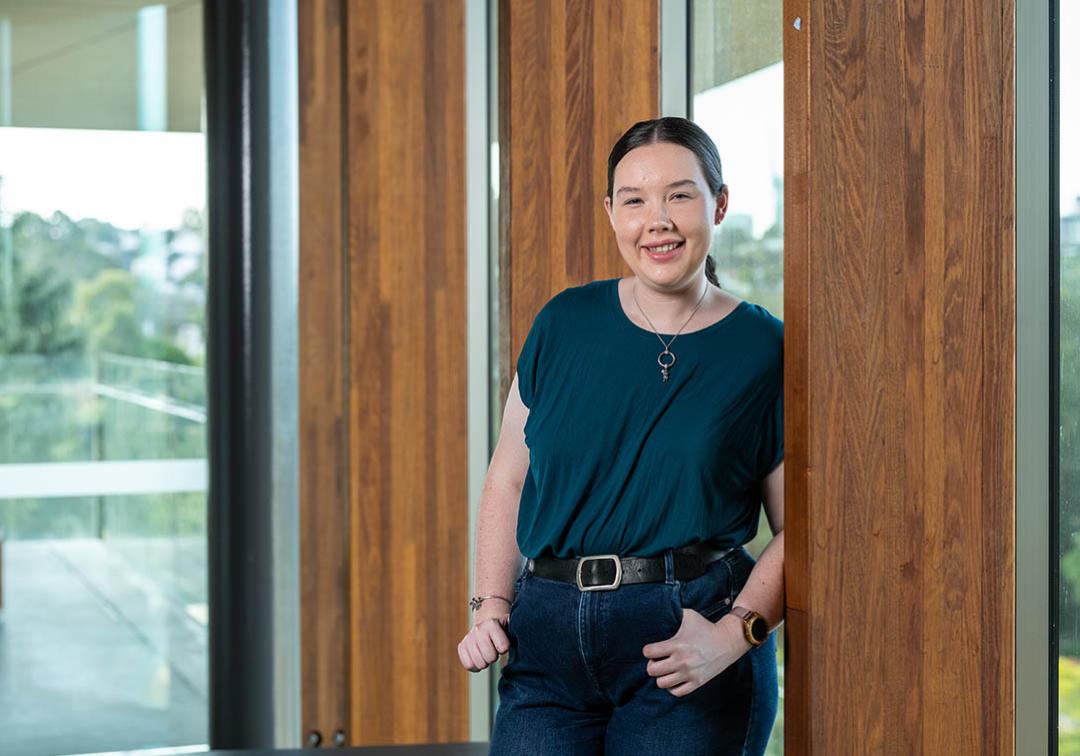
UQ people
Fighting fire with science: new tech to protect firefighters
6-minute read
Entry requirements
Prerequisites
- General English subject (Units 3 & 4, C)
- Mathematical Methods (Units 3 & 4, C); and
- one of Biology, Chemistry, Earth and Environmental Science or Physics (Units 3 & 4, C).
Prerequisites
- General English subject (Units 3 & 4, C)
- Mathematical Methods (Units 3 & 4, C); and
- one of Biology, Chemistry, Earth and Environmental Science or Physics (Units 3 & 4, C).
Entry score threshold
| ATAR / Rank | IB |
|---|---|
| 80 | 28.75 |
These are the lowest adjusted scores we made an offer to in Semester 1, 2024. Entry scores are based on the most recent Semester 1 intake and are updated in April each year. Meeting the entry score threshold doesn't guarantee admission.
Guarantee your place at UQ: If you meet our guaranteed minimum ATAR you could secure an offer for your preferred program.
English language requirements
IELTS overall 6.5; reading 6; writing 6; speaking 6; listening 6. For other English Language Proficiency Tests and Scores approved for UQ
TOEFL iBT (including Paper Edition) - Overall 87, listening 19, reading 19, writing 21 and speaking 19.
PTE Academic - Overall Score of 64 and 60 in all sub bands.
BE - A minimum overall grade of 4 plus a minimum grade of C in all macro skills.
CES - Overall 176 and 169 in all sub bands.
OET is not accepted.
There are other ways to meet the English language requirements. For some programs, additional conditions apply.
Student visas
International students who are accepted into full-time study in the Bachelor of Environmental Science are eligible to apply for an Australian student visa (subclass 500).
There are a number of requirements you must satisfy before a visa is granted, including the Genuine Student (GS) requirement.
Entry score range
This table shows the range of entry scores for recent secondary students offered a place in the B Environmental Science for Semester 1, 2024
| Without adjustments | With adjustments | |
|---|---|---|
| Highest | 99 | 99 |
| Median | 88.75 | 89 |
| Lowest | 80.15 | 80.15 |
Who you'll study with
Here's a snapshot of our student intake for this program in Semester 1, 2024:
| Applicant background | Number of students | Percentage of all students |
|---|---|---|
(A) Higher education study | <5 | <5 |
(B) Vocational Education and Training (VET) study | 0 | 0% |
(C) Work and life experience | 0 | 0% |
| (D) Recent secondary education | ||
| N/P | N/P |
| 0 | 0% |
| 0 | 0% |
International students | 11 | 45.8% |
Total | 24 | 100% |
"<5" — The number of students is less than 5.
N/A — Students not accepted in this category.
N/P — Not published. The number is hidden to protect the privacy of students in other cells.
Need help meeting the entry requirements?
Fees and Scholarships
Indicative annual fee
Approximate yearly cost of tuition (16 units). Your fees will vary according to your selected courses and study load. Fees are reviewed each year and may increase.
$8,438
2024
Fee information for 2025 is not yet available. Fee information displayed is for 2024.
$8,438
2025
Approximate yearly cost of tuition (16 units). Your fees will vary according to your study load. Fees are reviewed each year and may increase.
AUD $50,560
2024
Fee information for 2025 is not yet available. Fee information displayed is for 2024.
AUD $50,560
2025
Additional costs
- Courses that include a field trip component may incur additional costs to cover transport, accommodation and food.
Government assistance
Financial aid
As an international student, you might be eligible for financial aid – either from your home country, or from the Australian Government.
HECS-HELP
Domestic places in the Bachelor of Environmental Science are Commonwealth Supported. This means the cost of your education is shared between you and the Australian Government.
Instead of tuition fees, Commonwealth Supported students pay what are called student contribution amounts.
HECS-HELP is an Australian Government loan scheme to assist eligible students with the cost of their student contribution amounts.
Centrelink support
The Australian Government offers a number of income-support payments to eligible Australian university students.
Scholarships
You may be eligible for more than 100 scholarships, including:
How to apply
Applying online
If your senior schooling is from outside Australia, you can submit your application to UQ. Or, if you prefer, you can use an approved UQ agent in your country.
The program code for the Bachelor of Environmental Science is 2458.
Find out more about applying for undergraduate study
If your senior schooling is from Australia
Submit your application to the Queensland Tertiary Admissions Centre if you're an international student who is currently studying:
- Australian Year 12 (in Australia or another country), or
- the International Baccalaureate in Australia.
The QTAC code for the Bachelor of Environmental Science is 738001.
Applying through QTAC
All domestic applications should be submitted to the Queensland Tertiary Admissions Centre (QTAC).
The QTAC code for the Bachelor of Environmental Science is 738001.
Important dates
If you’re studying Year 12 in Australia, go to the QTAC website to check the closing date for this program.
If you’re applying to UQ, the closing date for this program is:
- To commence study in semester 2 - May 31 of the year of commencement.
- To commence study in semester 1 - November 30 of the previous year.
To learn more about UQ dates, including semester start dates, view the Academic Calendar.
Important dates
To check the closing date for this program, go to the QTAC website.
To learn more about UQ dates, including semester start dates, view the Academic Calendar.
Admissions schemes
Applying to university can be both exciting and daunting, which is why we’ve tried to make the process as simple as we can.
We have several schemes in place to improve your chances of getting a place at UQ.
Pathway options
A rank or score doesn’t determine your potential.
If you're not offered a place in your first-choice program – or if you don't meet the entry requirements – you still have a number of options.
Aboriginal and Torres Strait Islander applicants
For support with applying – or if you have any questions about university life – get in touch with our Aboriginal and Torres Strait Islander Studies Unit.
Explore other programs
Express yourself. And your interest.
They say choosing a degree is hard, which is why we've made it easy. Register your interest and we'll send you everything you need to know about applying to UQ.


